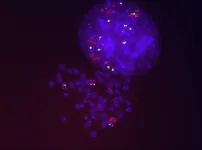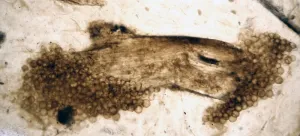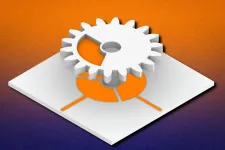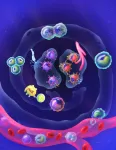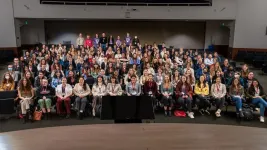(Press-News.org) Texas Engineers are leading a multi-university research team that will build technology and tools to improve measurement of important climate factors by observing atoms in outer space.
They will focus on the concept of quantum sensing, which use quantum physics principles to potentially collect more precise data and enable unprecedented science measurements. These sensors could help satellites in orbit collect data about how atoms react to small changes in their environment, and using that to infer the time-variations in the gravity field of the Earth. This will enable scientists to improve how accurately several important climate processes can be measured, such as sea level rise, ice melt rates, changes in land-water resources and ocean heat storage changes.
This will be the first effort to establish a new phase in quantum technology development, advancing beyond the quantum principles known in physics and actually translating them into usable device concepts.
"There have been tremendous advances in quantum methods recently, mostly in the context of computing," said Srinivas Bettadpur, leader of the new project and professor in the Department of Aerospace Engineering and Engineering Mechanics at The University of Texas at Austin. "We want to use quantum sensing technology in space – where you can watch the entirety of the planet – to solve next-generation problems by observing, interpreting and understanding climate processes."
The new Quantum Pathways Institute includes researchers from UT Austin, University of Colorado Boulder, University of California Santa Barbara, California Institute of Technology and the U.S. National Institute for Standards and Technology. The researchers will receive up to $15 million in funding from NASA’s Space Technology Mission Directorate over five years for the institute.
The researchers will specifically look at changes in gravitational forces and what that means for climate. As climate shifts – with ice caps melting and sea levels and temperatures changing – that changes gravitational forces around the earth and in outer space. Atoms orbiting the earth react to those gravitational changes. By measuring those reactions, the researchers can give better readings of changes in climate processes.
The challenge for the team is two-fold. Parts of these sensing technologies exist today, but a lot of what they are building is new. Add to that the challenge of sending these instruments into orbit.
"You can't have manual maintenance in space – once you send something out, it's out of reach; you cannot see it," said Bettadpur.. "You have to put in a great deal of work to make sure the instrument will fly and the technology will function for several years, at least, to enable the discoveries."
To build this technology from the ground up, and make it space ready, requires a large and diverse team of researchers. Bettadpur is an expert in orbital mechanics, gravity fields and space mission design.
Seth Bank and Dan Wasserman, professors in the Chandra Family Department of Electrical and Computer Engineering at UT Austin, will work with Daniel Blumenthal from UC Santa Barbara to develop the photonic, or light-based, integrated circuits for compact chips to measure small variations in Earth’s gravity from space. Ufuk Topcu, associate professor in the Department of Aerospace Engineering and Engineering Mechanics and the Oden Institute for computational engineering and sciences, will apply his expertise in modeling complex systems to develop models for quantum sensing systems that can be used to improve their reliability and autonomous operation – both of which are key for space applications where device maintenance is not an option.
Other team members – and their areas of expertise – on the project include:
From Colorado Boulder, Dana Anderson, an expert in experimental quantum physics and instrumentation; Penina Axelrad, an expert in quantum navigation and timing; Murray Holland, theoretical physics and quantum machine learning; Marco Nicotra, quantum optical control;
From Caltech, Michael Watkins, former director of the Center for Space Research at UT Austin, former director of the NASA Jet Propulsion Laboratory, and an expert in systems, spaceflight and gravity science;
And from the National Institute for Standards and Technology, Michelle Stephens, a physicist and expert in precision measurement for space and quantum applications. END
Quantum sensing in outer space: New NASA-funded research will build next-gen tech to better measure climate
2023-03-17
ELSE PRESS RELEASES FROM THIS DATE:
Scientists identify the mechanisms leading to resistance to lung cancer treatment with Sotorasib, the first KRAS inhibitor
2023-03-17
A collaborative study carried out by the groups of Matthias Drosten, principal investigator at the Cancer Research Center (CSIC- University of Salamanca), and Mariano Barbacid, head of the Experimental Oncology group at the CNIO, reveals the mechanisms responsible for the development of tumor resistance to Sotorasib, the first approved inhibitor against the KRAS oncogene.
The study, recently published in the Journal of Clinical Investigation, shows that lung tumor cells can rapidly adapt to this drug by increasing the number of copies of the mutated KRAS gene targeted by the treatment and by increased expression of xenobiotic pathways that limit ...
Fossil site is ‘Rosetta Stone’ for understanding early life
2023-03-17
Fossil site is ‘Rosetta Stone’ for understanding early life
Leading edge technology has uncovered secrets about a world-renowned fossil hoard that could offer vital clues about early life on earth.
Researchers who analysed the 400 million-year-old-cache, found in rural north-east Scotland, say their findings reveal better preservation of the fossils at a molecular level than was previously anticipated.
Fresh scrutiny of the exquisitely preserved treasure trove from Aberdeenshire has enabled scientists to identify the chemical fingerprints of the various organisms within ...
3D-printed revolving devices can sense how they are moving
2023-03-17
Integrating sensors into rotational mechanisms could make it possible for engineers to build smart hinges that know when a door has been opened, or gears inside a motor that tell a mechanic how fast they are rotating. MIT engineers have now developed a way to easily integrate sensors into these types of mechanisms, with 3D printing.
Even though advances in 3D printing enable rapid fabrication of rotational mechanisms, integrating sensors into the designs is still notoriously difficult. Due to the complexity of the rotating parts, sensors are typically embedded manually, after the device has already ...
Tackling gambling harm among Armed Forces veterans
2023-03-17
Swansea University News Release
17 March 2023
£1 million for projects involving Swansea experts to tackle gambling harm among Armed Forces veterans
Research to tackle gambling harm among Armed Forces veterans has received a major boost with three awards, totalling £1 million, for new projects in the field that involve Swansea University experts.
The projects include evaluating a smartphone app for veterans with gambling disorder and PTSD, which is aimed at reducing symptoms,
The three projects ...
Rivers and streams in the Andean Cordillera are hot spots for greenhouse gases emissions
2023-03-17
A new scientific study by researchers from the University of Liège (Belgium) shows that rivers in the Andean mountains contribute 35% and 72% of riverine emissions of carbon dioxide (CO2 ) and methane (CH4 ) in the Amazon basin, the world's largest river. This study is published in the journal Communications Earth & Environment.
Rivers contribute substantially to global emissions of carbon dioxide (CO2) and methane (CH4). The Amazon River, the World's largest river, plays an important role in greenhouse gas (GHG) emissions. It is the largest river on the planet in terms of freshwater flow," explains Alberto Borges, ...
Dual-task walking performance may be an early indicator of accelerated brain aging
2023-03-17
Boston, MA -- Walking is a complex task that is most commonly performed while completing other tasks like talking, reading signs, or making decisions. For most, after the age of 65, such “dual tasking” worsens walking performance and may even cause unsteadiness. Intriguingly, older adults that are more affected by dual tasking are at higher risk of suffering adverse health outcomes, including both falls and dementia.
A new research study published in Lancet Healthy Longevity has reported that the ability to dual task when walking starts to decline by the age of 55, up to a decade before ‘old ...
New study counts the environmental cost of managing Japanese knotweed
2023-03-17
New Swansea University research has looked at the long-term environmental impact of different methods to control Japanese knotweed.
The invasive species has been calculated to cost more than £165 million to manage every year in the UK alone. Its presence can blight property purchases for households across the country.
This has led to the development of different ways of trying to control it but with sustainability becoming increasingly important, understanding the effect of these management methods is vital.
A new study, led by biosciences lecturer Dr Sophie Hocking and looking ...
Discovery of an unexpected function of blood immune cells : Their ability to proliferate !
2023-03-17
The ability of a cell to divide, to proliferate, is essential for life and gives rise to the formation of complex organisms from a single cell. It also allows the replacement of used cells from a limited number of “stem” cells, which then proliferate and specialize. In cancer, however, cell proliferation is no longer controlled and becomes chaotic. Researchers from the GIGA Institute at the University of Liège have discovered that, in a healthy individual, certain blood immune cells, the monocytes, ...
Women working rotating shifts especially likely to be frail, York study finds
2023-03-17
March 17, 2023, TORONTO — A new study led by researchers at York University has found a link between shift work and frailty among middle-aged and older workers in Canada, especially for women on rotating shifts.
While there is a large body of research suggesting the disruptions to circadian rhythms that shift workers experience are linked to various illnesses, this study was the first to take a comprehensive or “holistic” look at the connection between shift work and frailty.
“We cannot ignore the negative health outcomes related to shift work, including cardiovascular diseases, ...
Argonne hosts conference for undergraduate women in physics
2023-03-17
The U.S. Department of Energy’s (DOE) Argonne National Laboratory hosted an American Physical Society (APS) Conference for Undergraduate Women in Physics (CUWiP) on Jan. 20-22. The conference series, sponsored by DOE and the National Science Foundation, is designed to support undergraduate women and gender minorities in physics by connecting them with resources, community, information on graduate school and professionals in their field. It also provides students with access to other women in physics with whom they can share experiences, advice and ideas.
The January 2023 event is one of 14 APS CUWiP events hosted across the country and ...

